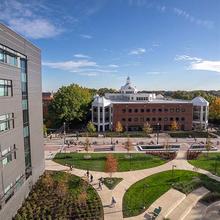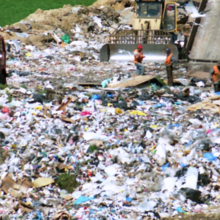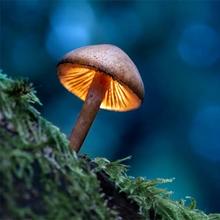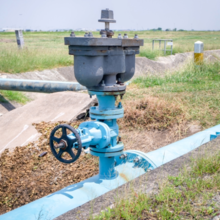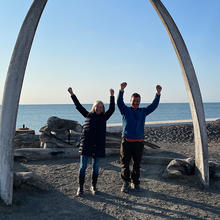- October 7, 2025
Researchers at George Mason University will collaborate on an NSF planning grant to develop resilience solutions and technologies. They will work with Indigenous communities, industry partners, government agencies, and six academic institutions.
- July 30, 2025
George Mason University’s civil engineers are assessing the climate change challenges facing some of the world’s highest mountain ranges, creating better ways to measure the melting ice in high elevations where temperatures are rising faster than average and putting pressure on the livelihoods of fragile cultures and ecologies.
- March 5, 2024
The funding will help develop new tools in imaging technology using a light source that is five times better than white light for identifying and visualizing bruising across all skin tones for use by forensic nurses, social service providers, and law enforcement.
- January 23, 2024
Mason scientists and partners will leverage their climate expertise and the university’s resources into broader societal implications, thanks to a $6 million grant from the National Science Foundation (NSF).
- January 22, 2024
Mason engineering professor Kuo Tian is monitoring landfills to make sure our trash doesn't contaminate drinking water.
- November 27, 2023
Emissions from coal-fired power plants, though steeply on the decline, are more than twice as likely to lead to mortality as other air pollutants.
- October 24, 2023
Certain types of mushrooms—or fungi—may have a place in infrastructure, potentially saving costly repairs and time. Xijin “Emma” Zhang, assistant professor in civil engineering, is researching this relatively new area of engineering and other green technology solutions for common challenges.
- October 23, 2023
With funding from the Virginia Department of Transportation (VDOT), CEIE professor Shanjiang Zhu and his research team will reconcile travel data from three different sources—surveys, smartphones, and connected vehicles—into invaluable travel information.
- October 23, 2023
Americans generally assume tap water is safe to drink; but rising temperatures could prove them wrong. Kirin Emlet Furst received a grant to study how extreme heat is challenging the disinfection of water in underground distribution systems.
- August 23, 2023
The National Science Foundation's Navigating the New Arctic researchers traveled to a remote location to attend the Permafrost and Infrastructure Symposium in Utqiaġvik, Alaska, some 320 miles north of the Arctic Circle.




